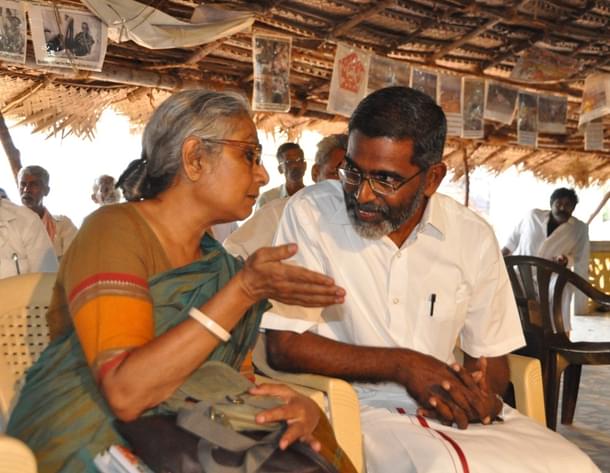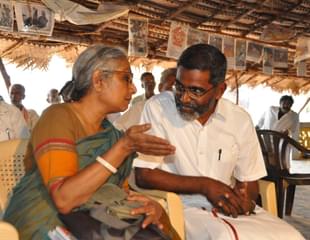Politics
Even The Supreme Court Agrees, NGOs Have Become A Problem
Swarajya Staff
Sep 14, 2016, 06:06 PM | Updated 06:06 PM IST
Save & read from anywhere!
Bookmark stories for easy access on any device or the Swarajya app.


There is no love loss between the current government and the Non-Governmental Organisations (NGOs).
Foreign funding of the NGOs has been a particular area of concern for the government as it believes that the NGOs run the agenda of those who bankroll them. And these foreign funders have no skin in the game or stake in India’s progress, so when the NGOs backed by them try to stall development projects, this further helps validates the government’s suspicions.
Prime Minister Narendra Modi has had many run-ins with these NGOs, the most infamous being the row over his pet project, Sardar Sarovar Dam, when he was the Gujarat chief minister.
Last year, his government cancelled the registrations of over 10,000 NGOs under the Foreign Contribution Regulation Act (FCRA) which governs foreign funding of NGOs. Recently, it fired a Joint Secretary in the Home Ministry for the online renewal of FCRA license of Islamic preacher Zakir Naik’s NGO.
The government has been heavily criticised for its high-handedness in dealing with the NGOs. But today, it has received the endorsement of none other than the highest court in the country.
The Supreme Court, while hearing a petition on the issue of foreign funding of NGOs, observed today that a lack of law to regulate the “mind-boggling” funds NGOs get annually is a “major problem”.
The apex court has appointed senior advocate Rakesh Dwivedi as amicus curiae to assist it in ‘finding a way to deal with the issue and, if necessary, refer to the Law Commission.’
The Hindu quotes Chief Justice of India T.S. Thakur saying, “this is a major problem. They are getting money from all over the world. Mind-boggling...”
“What is an NGO? Anyone can register a society and it becomes an NGO... There is no legal brainwork done at the Central level to control them. Unless some mechanism is put in place centrally, nothing can be done,” he added.
This is a major development and would definitely cheer those in the government. NGOs would have to come clean and raise funds in a transparent manner otherwise even taking the legal route to save themselves from the government’s crackdown will be of little help once the law is put in place as suggested by the CJI.





